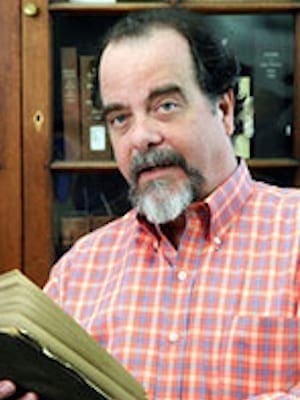How was it that a German Lutheran pastor, once noted for his pacifism, would die in his 39th year, convicted of high treason against the government of his beloved Germany?
Only days before, Nazis had discovered Admiral Canaris’s diary that detailed the work of “Operation 7,” part of the German Resistance Movement that boldly attempted to assassinate Hitler. The diary’s exposure of Bonhoeffer and his co-conspirators led to their hanging. Before climbing the gallows, Bonhoeffer said, “This is the end; for me it is the beginning of life.”
How was it that a German Lutheran pastor, once noted for his pacifism, would die in his 39th year, convicted of high treason against the government of his beloved Germany?
Dietrich Bonhoeffer was not the product of an active Christian home. His physician father and cultured mother did not encourage Dietrich’s emerging sense of vocation as a teaching theologian. They hoped for him a career in law or music, but did not obstruct his decision to study theology and philosophy. In 1927, Bonhoeffer’s pilgrimage toward becoming a teaching theologian culminated with his graduation from the university in Berlin with the doctorate.
In 1930, the promising young theologian was invited to accept a post-doctoral position as lecturer in systematic theology at New York’s Union Theological Seminary. Bonhoeffer seemed at home, but the building clouds of concern in Germany made it impossible for him to stay. He returned to Berlin and took up the task of teaching theology.
Politics shaped the rest of Bonhoeffer’s life. Post-World War I Germany—like the rest of the West—struggled with economic and political uncertainty. With the rise of Adolf Hitler and the establishment of the Nazi party, Bonhoeffer increasingly found himself in opposition to the government of the country he loved. In 1933 the government excluded all people with Jewish heritage from public service. Soon the National Church “rubber-stamped” the policy. Bonhoeffer and others were galvanized in their resistance.
The Barmen Declaration of 1934—a pronouncement resisting the official position of the government and the official German Church—was an anchor for Bonhoeffer’s subsequent work as pastor, theologian and political activist. Those involved with the Barmen Declaration came to be known as “the Confessing Church” because of their stark confessions of the power of the Gospel to resist the Nazi juggernaut.
Bonhoeffer was instrumental in founding a Confessing Church seminary at Finkenwald. There he taught like-minded ministers in hopes of becoming the “salt, light, and leaven” that might change the course of German political attitudes. It was not to be. In 1937 the seminary was shut down by Heinrich Himmler’s Gestapo. One of Bonhoeffer’s works, Life Together, offers a powerful reflection upon theological study under the shadows of an inflexible government.
With the demise of the seminary at Finkenwald, Bonhoeffer explored other vocational options. In 1939 he accepted an invitation to join the faculty at New York’s Union Theological Seminary. It was a short-lived exploration. Bonhoeffer chaffed under the separation from his German cohorts.
In a letter, he expressed his compulsion to return to Germany:
“I have had time to think and to pray about my situation, and that of my nation, and to have God’s will for me clarified. I have come to the conclusion that I have made a mistake in coming to America. I shall have no right to participate in the reconstruction of the Christian life in Germany after the war if I did not share in the trials of this time with my people. Christians in Germany face the terrible alternative of willing the defeat of their nation in order that civilization may survive, or willing the victory of their nation and thereby destroying civilization. I know which of these alternatives I must choose. But I cannot make that choice in security.”
Dietrich Bonhoeffer thus returned to Germany and threw himself into a resistance movement that would cost him his life.
Bonhoeffer’s legacy cannot be contained by books or articles or columns. Perhaps more than any other theologian of the last century, Bonhoeffer’s insights challenge us. Two issues are of special significance:
- The Gospel cannot be reduced to the practice of the church. The Gospel is larger than the church and calls us to live lives of discipleship.
- Our whole life is stamped by sin. Everything we do is tainted by sin. To “sin boldly” (as Bonhoeffer did in his plot against Hitler) means that we should act in the confidence of grace. Even the life of the church is under the shadow of repentance. To acknowledge our sin is to confess our need for forgiveness.
Bonhoeffer never felt justified in his resistance to Hitler. He did, however, rely upon God’s grace to shape his actions.
Rick Wilson is the Columbus Roberts Professor of Theology and chair of the Roberts Department of Christianity in Mercer University’s College of Liberal Arts in Macon, Ga.
Buy Wilson’s books now from Amazon.com!
Mercer Commentary on the Bible
Rhythms: Sermons for a Community of Faith and Learning

